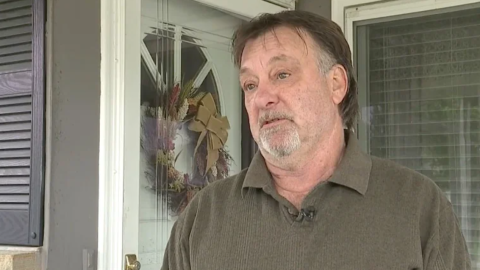Fmr US Ambassador to Israel: 'They Have to Obliterate Hamas,' Reset the Middle East
Israel is going to "obliterate Hamas." That's the assessment of former U.S. Ambassador to Israel David Friedman. We spoke to Friedman about the impact of the war against the terrorist group, and what it could mean for the future of the Middle East.
David Brody: Benjamin Netanyahu has actually said that Hamas' attack would change the Middle East. What did he mean by that? How do you see the road map going forward now?
David Friedman: Well, I think Israel has been in battles with Hamas for a couple of decades, as you know, and the way they've looked at it in the past has been to manage the conflict. I think those are the words they used, to degrade Hamas, set them back a couple of years, and then revisit the issue later.
Now, everything has now changed, because this attack by Hamas, as others have said, as I've said numerous times, that the greatest, most barbaric assault on the Jewish people since the Holocaust.
This changes the equation. What this tells Israel and the world is that it can no longer manage this conflict. It can no longer degrade Hamas, declare a ceasefire, and go back to its business. They have to end Hamas, they have to destroy Hamas, they have to obliterate Hamas. And that's a different approach. And it's the right approach, and I think they're going to succeed in doing it.
And I think when they do, understand that, this whole Middle East, there are common enemies. I mean, part of the Abraham Accords, when we put that together, was built upon the fact that, whether it's Israel or UAE or Bahrain or Morocco, all of these nations are battling radical Islamic extremists. And this is going to be the beginning of the end of them. Because whether it's Hamas or the Muslim Brotherhood or Islamic Jihad, I think it will draw out and ultimately eliminate these extremists throughout the region.
***Please sign up for CBN Newsletters and download the CBN News app to ensure you keep receiving the latest news from a distinctly Christian perspective.***
Brody: When you talk about Hamas being eliminated, what does that look like on the ground in Gaza? I mean literally, they're gonna go, the IDF's going to go into obviously Gaza, what does that look like from securing the Gaza area as it relates to control? That they will be then in control on the ground in Gaza? How do you see this playing out specifically?
Friedman: Look, it's a war. I mean, I think you look at it, we've had wars in our history, and we sort of have a template for that. I'm looking sort of at World War II, what happened to Germany. America and the allies defeated Germany, they got rid of all the Nazis, they cleaned it up as best they could, and they held it for a while, until they were able to turn it over to people they could trust to be peaceful. And it actually was very successful. We obviously have very good relations now with Germany, great relations with Japan.
They're going to have to clean out this area, rid it of radical Islamic extremists. And by the way, at the end of the day, you know who the real winners are? The real winners are the people of Gaza, because they will have been liberated from this oppressive regime.
And, you know, how long it takes to then hold it and kind of rehabilitate it and resuscitate it, I don't know. But I can tell you this - Israel doesn't want it, Israel has no territorial aspirations here. What Israel wants is just a quiet border, and to hold it as long as they need to, that quiet border.

Brody: What should Israel do with Iran at this point? I know they have their hands full dealing with Hamas, but what about Hezbollah in the north, what happens at that point? If Hezbollah, we've already seen some minor incursions to a degree - the tunnels, the terror tunnels - what happens if Hezbollah strikes from the North? How does that change everything, especially as it relates to Iran, and potentially America's involvement at that point?
Friedman: Well, we'll have to see. I hope it doesn't happen, and there's no good reason, as I try to put myself in Hezbollah's shoes, which is awfully difficult to do. But as I think of it, Iran, which is ultimately calling all the shots here, Iran has achieved I think all that it could have possibly asked for in this proxy war through Hamas. I don't know why they would want to jeopardize Hezbollah's assets, and ultimately turn, I think, the people of Lebanon against Hezbollah, because it would result... ultimately, I think basically Israel would flatten Lebanon.
And I believe they can. I would not underestimate the resolve of the IDF. They will win this, and I think Hezbollah knows that. If they do enter the war, it's going to engender complexity.
As to Iran, look, we gotta stop appeasing Iran. I mean, this is basic stuff. I mean, at the very same time that the United States and Iran are negotiating a prisoner swap, and America is freeing up six billion dollars to show America's good faith, as if America is the one of the two parties to show its good faith, at the very same time, Iran and Hamas are planning this attack... And we should take these sanctions up dramatically.
Brody: Ambassador Friedman, appreciate your time.



